Tesla allowed electric car drivers in the UK to charge for free for a whole day to mark the 10th anniversary of its Supercharger network in Europe.
Open to owners of all EVs and not just Teslas, the firm's Supercharger devices were free to use from 08:00 to 23:59 BST on Tuesday 29 August. The last charging sessions had to begin by 22:59 at the latest.
The European network was inaugurated on 19 August 2013 in Norway and since then has expanded to include 36 countries and 13,000 individual chargers.
The initiative comes as part of Tesla's Summer Celebrations, wherein the EV company offers its thanks to those who have supported it since it began and contributed to the growth of its Supercharger network, which now comprises 9200 devices across Europe.
As of November 2021, the European Supercharger network started to accept EVs from other brands, with 15 individual locations in the UK currently taking part in a pilot scheme allowing all EVs to use the network.
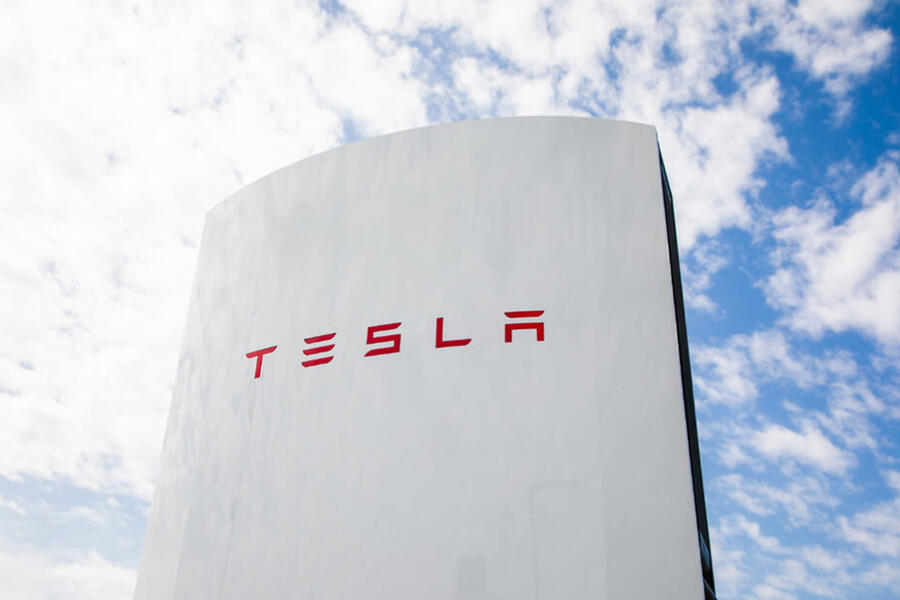
Last week, Tesla launched its latest-generation V4 Supercharger in the UK, and this will eventually open up Tesla sites across the UK to EVs from all brands.
It features a three-metre-long cable that can supply power at rates of up to 250kW for EVs with a CCS connection, activated either by contactless card payment or via the Tesla smartphone app. Prices are set at 50p per kWh.
While other charging firms have already introduced faster chargers, for instance Gridserve’s 350kW High Power unit, a Tesla spokesperson told Autocar the V4 was "futureproof", thanks to over-the-air software-update functionality, and that faster rates could be offered in the future.
The V4 features a more discreet design than Tesla's previous-generation V3 charger. The design with a large aperture, which has been a Tesla staple for three generations of chargers, has been replaced by a solid box.
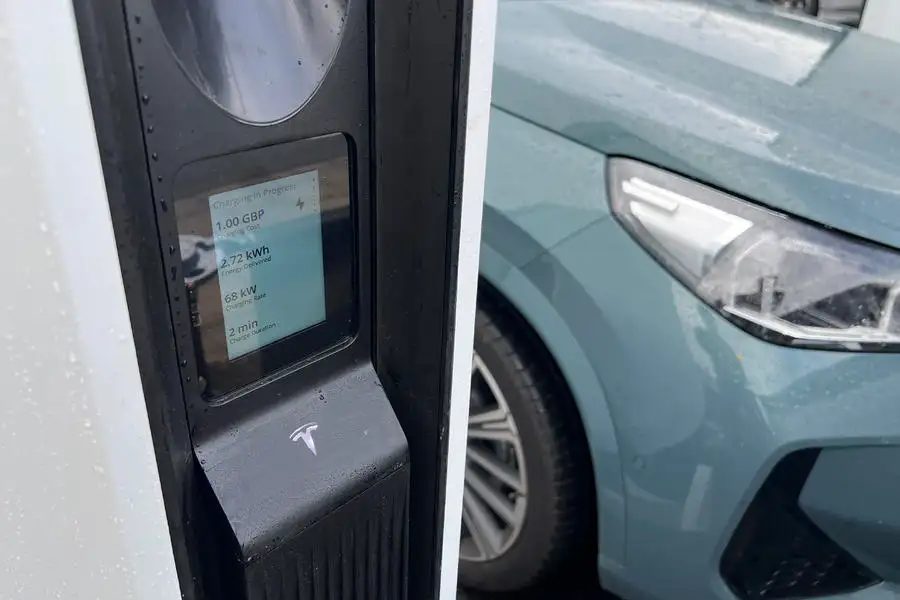

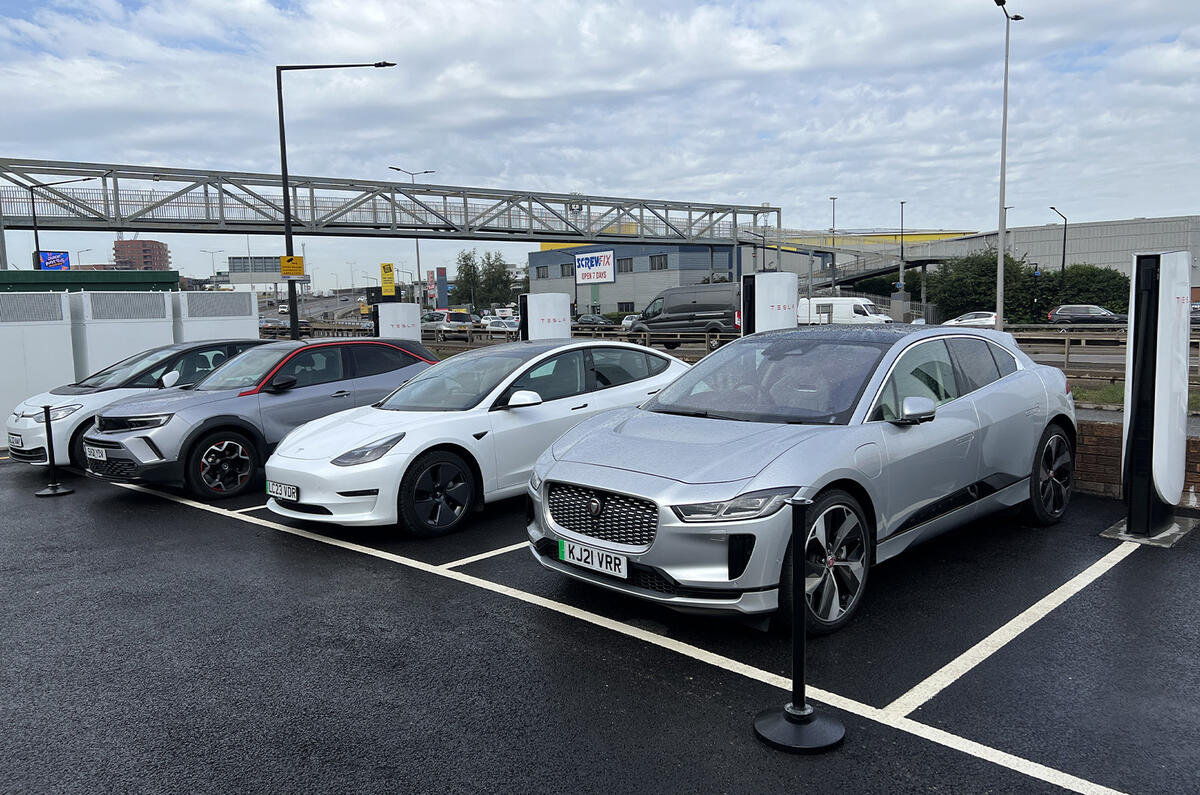
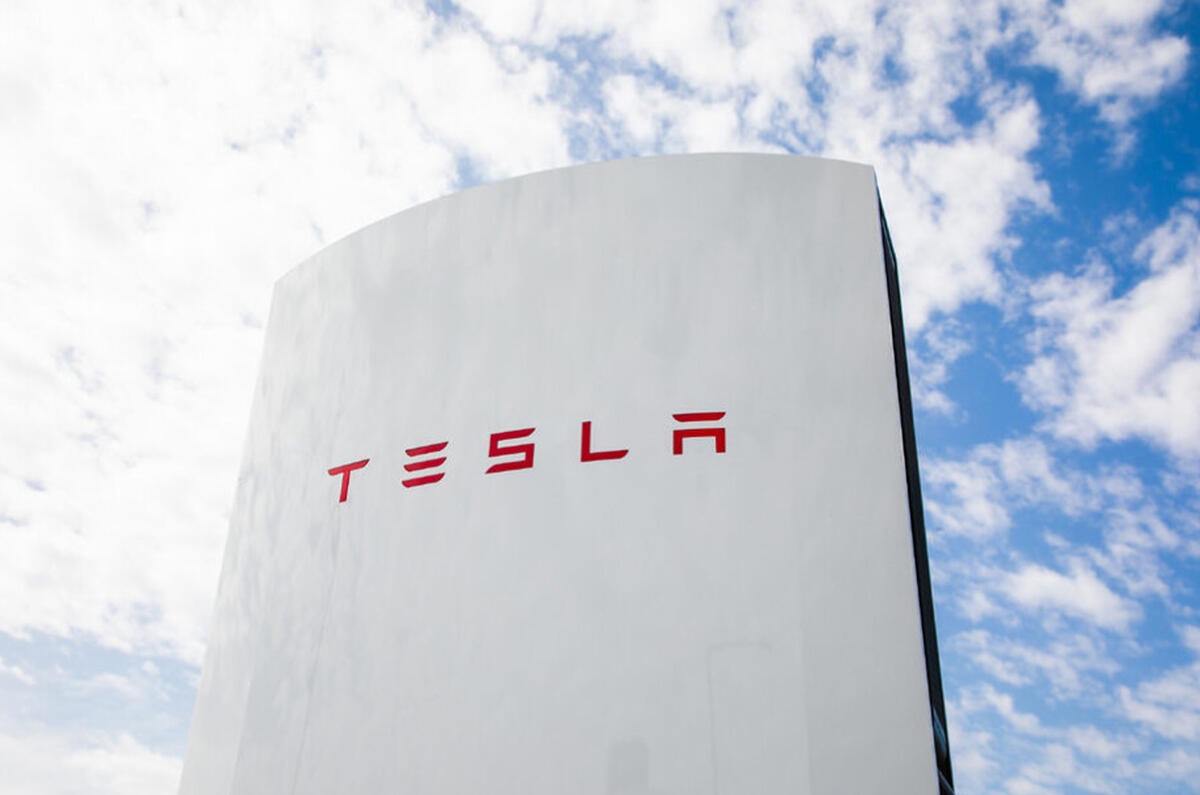
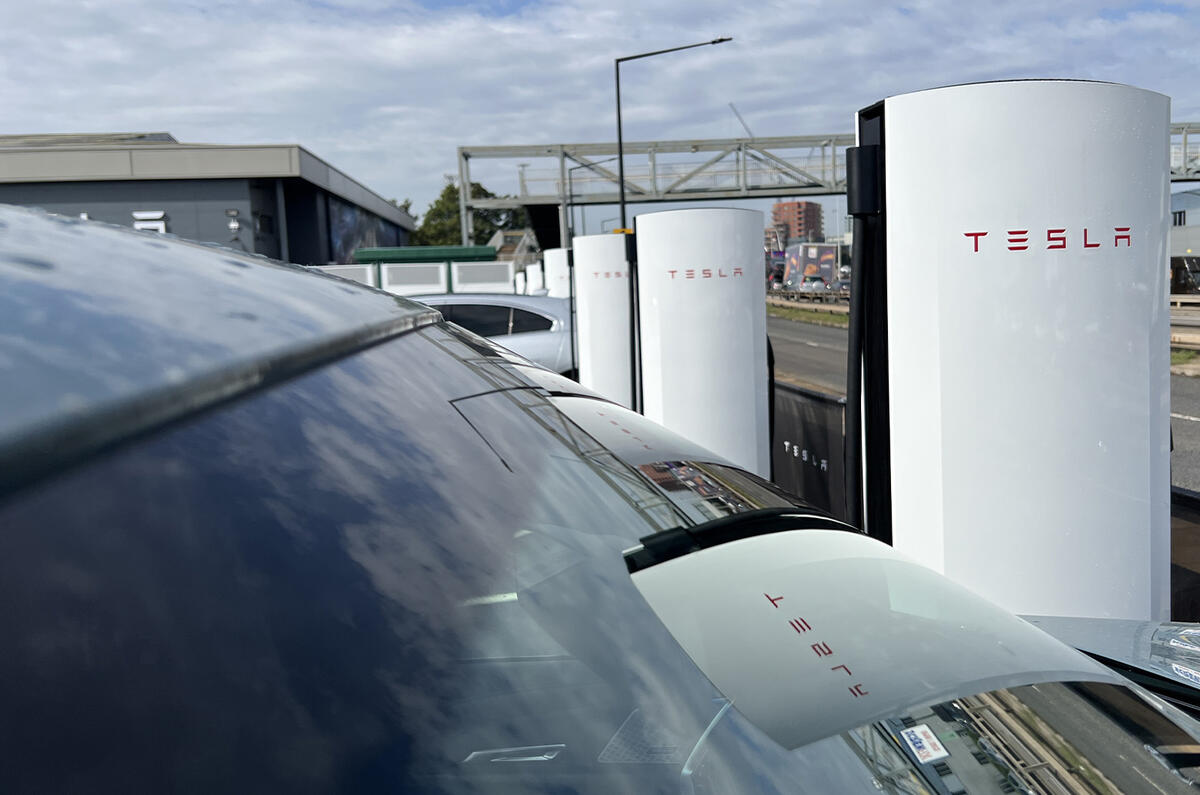
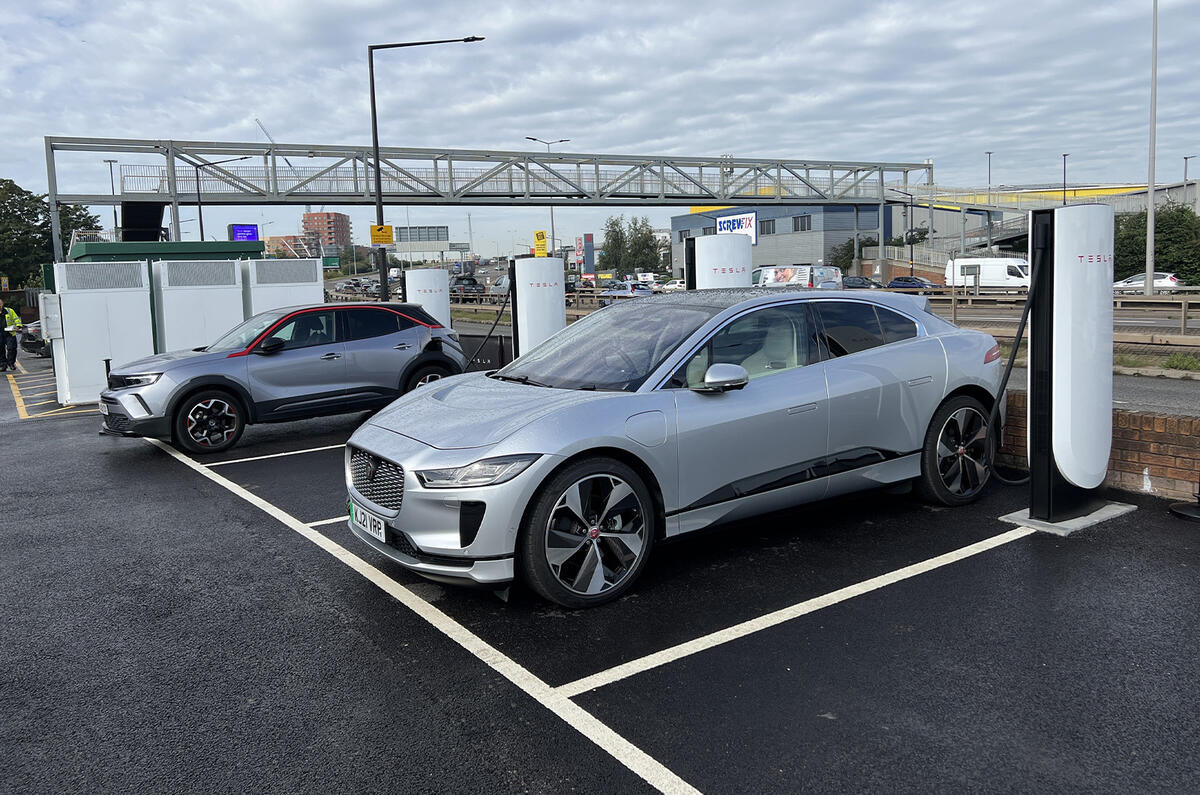
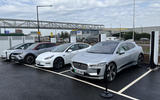
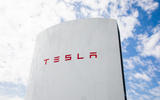
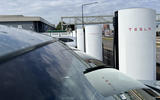
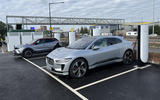


Join the debate
Add your comment
Tesla: first into the market and still the only manufacturer to bite the bullet with a recharging network.
I used to drive Cotswolds-Cornwall in one hit, but relaxed in the knowledge that Superchargers were available en route.
I find it complicated to make comparisons, I'm sure someone will correct me if I'm wrong. Would have thought Autocar would have made the comparison when invesigating this story.
I was recently weighing up a PHEV SUV. 18kw battery was good for approx 40miles. They were talking around 35mpg when running on engine alone.
So for this rapid charger ( which couldn't charge the PHEV rapidly but that's beside the point )
it'd cost 18 x 50p - £9.00 to go 40 miles or at £1.50 a litre, £6.90 to cover 35miles
Of course the non PHEV petrol engine car is good for 38mpg and costs £8000 less to buy in the first place.
It doesn't take a rocket scientist to work out why 2nd hand EV's are difficult to sell on. Once bitten...
Of course you can always pay an additionl £1000 to install a wall charger to supply electricity at 7p kwh for a few hours overnight, assuming of course you have a driveway - just means you can't go anywhere far from home.
No new ICE in 2030? It'll never happen.
The comparison is true, but maybe comparing inappropriate things, not least the subtle inequality of 35 miles on fuel and 40 miles on electricity.
The UK average petrol price is £1.50 per litre, but the motorway price (where you fill your tank if you need it, but try to avoid for daily use) is £1.75 per litre, prices from RAC. That makes it £9.09 to go 40 miles (1.75 * 40/35 * 4.546).
As you hinted, EV charging is also available at a wide range of prices:
But remember generally you would use rapid chargers to enable a drive that is more than your car's range, not to do your daily driving.
> just means you can't go anywhere far from home
That's not strictly true. A person who normally shops for cheap £1.48/l supermarket petrol wouldn't refuse to go on long journeys just because the fuel is more expensive on the motorway. It might be fairer to say "you can't go anywhere far from home at that price".
On the other hand, 40 miles from 18 kWh sounds very inefficient, at just 2.22 miles / kWh. So does 35 mpg, for that matter. On a recent 180 mile motorway drive, our EV averaged 4.3 miles / kWh at 70 mph, so roughly double the efficiency. I didn't want to take my car as the example so I idly searched and found the Ford Kuga PHEV which according to Green Car Guide does 43 mpg at 70 mph. It has about 34 miles real world range from 14.4 kWh battery, 2.36 miles/kWh, so not far off from your SUV example, so instead for variety I took the Kia Niro EV, for which they managed at least 3.55 miles/kWh in real world testing (compared to 4.4 WLTP claim). To be fair to fuel prices I also added a more efficient Ford Focus ECOnetic, averaging 67.2 mpg.
I'd make the comparisons as a range of prices to go 40 miles, because every journey is subtly different. Using electricity:
rapid 68 p/kWh
(when you have to)
Using fuel:
motorway 175 p/l
(when you have to)
The EVs and PHEVs on electricity get both cheaper and more expensive per mile, depending on how you charge them. At the cheaper end electricity is a lot lower than the cheapest petrol. I imagine that car owners of all types skew their fuelling or charging to the cheaper options, so they likely come out cheaper overall, though some combination of the above prices is always going to be necessary.
As you point out, any simple comparison is going to have to exclude lots of variation. I'm still being unfair to the Ford Focus above, which Green Car Guide saw do 88.9 mpg on a cross country journey, so should I have adjusted the mpg for the motorway column? EVs probably get the edge around town in start-stop traffic, fuel cars may be better on the motorway. Similarly my journey from this weekend is just the figure I remembered; I don't have the lifetime efficiency to hand.
If I had to summarise the above information, I'd say that the electric driving prices are cheaper for most of the miles most people will do.
Of course, this is comparing only the energy costs of driving, which vastly oversimplifies the many choices people make when buying a car.
Shame that a major reason to buy a Tesla will be degraded by this move. Always felt a bit special to pull up at a reliable fast charger with restricted Tesla only use.
Hope they can replace the consequent lost sales volumes, with the profits from opening up the network to all comers.
[quote=Bimfan]
Maybe Tesla should be the sole provider?, as far as I know no other car brand or charger company is doing this, is this good PR?, or, showing how poorly run the networks are?